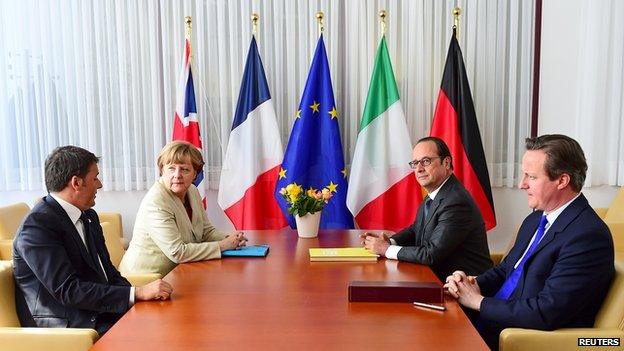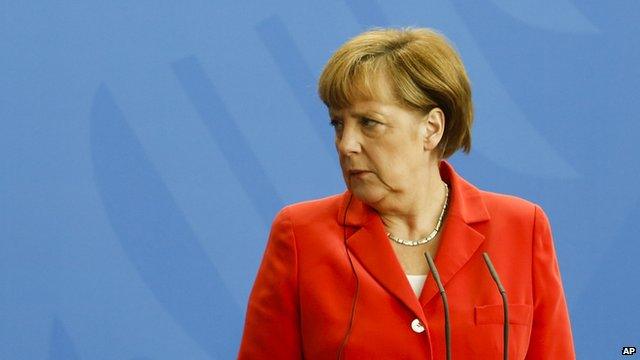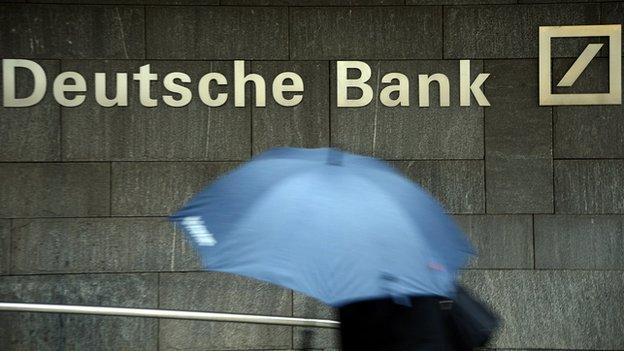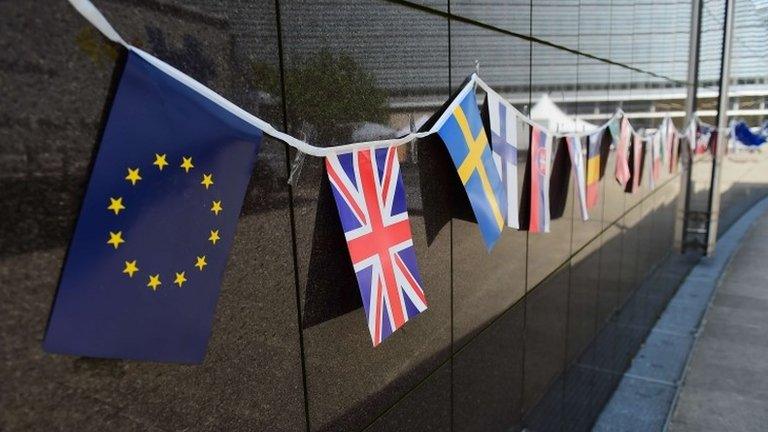Why Germany is David Cameron's new best friend
- Published
- comments

David Cameron will face a tough battle with other EU nations when negotiations commence
EU leaders are curious to meet the British prime minister when he joins the Eastern Partnership Summit in Riga.
They know him of old, of course, but for many this is a potentially new David Cameron, freshly elected with an unexpected majority.
Many leaders got rather irritated with the prime minister in the long lead up to the election. They felt he played too much to the Eurosceptic gallery at home when abroad on EU business.
Will this new David Cameron be a man they can work with, they wonder? They'd like to.
With the UK's in/out referendum on EU membership looming large in European headlines, most want to ensure Britain stays in, especially in Germany, as I found out earlier this week on a trip to Berlin.
The UK's former ambassador to Germany, Sir Peter Torry, describes the country as the best friend and ally the UK could have in its EU renegotiation.
Pretty useful for Mr Cameron, as Germany is Europe's most powerful nation.
Michael Stuermer, former adviser to Helmut Kohl, says German Chancellor Angela Merkel wants the UK to stay within the EU
There are very practical reasons why Germans are so keen to keep Britain in - and not just because they share a love for sausages and beer, as one student I chatted to suggested.
German businesses appreciate Britain's free trade, single market, and anti-red tape push. They see this as a counterweight to the EU's more protectionist, interventionist countries.
German taxpayers agree with the UK's drive to crack down on welfare claims by migrants. And Germany is very keen to avoid having to pay even more into the EU budget.
It would end up making up most of the shortfall if the UK walked away.
So there's lots of good will, but no blank cheque.
Hunger for reform
I asked German MP Michael Fuchs, of Angela Merkel's CDU party, how far the Chancellor would go to help Britain.
She'll offer "utmost flexibility", I was told, but there would also be red lines.
There is little appetite in Germany or anywhere outside Britain for fundamental changes to existing EU treaties (for example to curb the freedom of EU citizens to live and work where they like in the EU).
Though the suggestion has been made in several countries that when treaties are eventually changed to facilitate more harmony in the eurozone, that's when the UK could possibly have its own treaty-changing elements written in.
But the timing looks wrong for Britain.
German Finance Minister Wolgang Schaeuble says any treaty change is unlikely before the UK holds its EU referendum.
But there is a widespread hunger for reform in the EU - from the north amongst the Scandinavian countries to Europe's southern reaches.
Governments realise that, with near deflation and high youth unemployment, especially in Spain, France and Italy, the EU is failing to live up to the aspirations of its almost half a billion citizens.
The question for Britain's prime minister is whether the change favoured by his European partners match the changes David Cameron wants?
Not all his European counterparts are prepared to be as open as Angela Merkel when it comes to UK requests.
Not everyone would be as regretful as Germany if the UK were to leave.
David Cameron has announced he will begin bilateral visits with his European colleagues as soon as this summit is over.
They expect concrete details on what exactly Britain wants from the EU by the leaders' next summit at the end of June.
- Published19 May 2015

- Published19 May 2015

- Published18 May 2015

- Published17 February 2016
